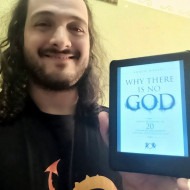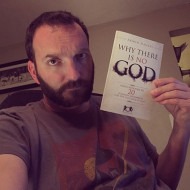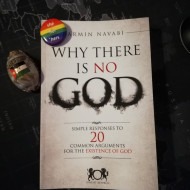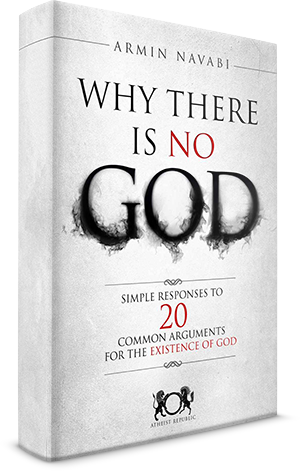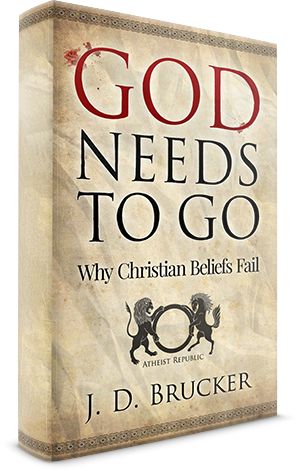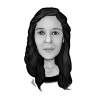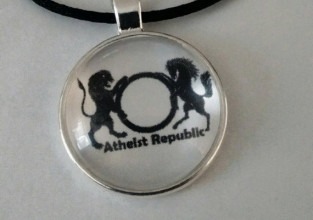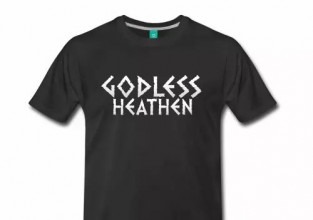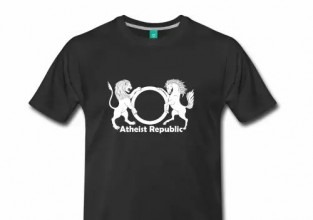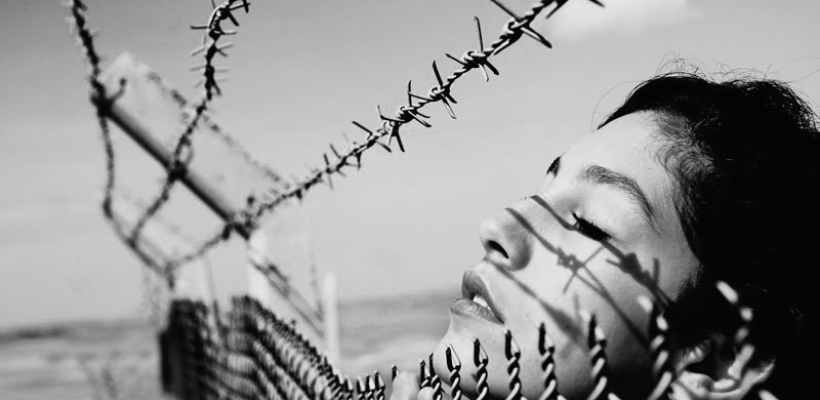
One of the things that ultimately led me away from religion was the added layers I noticed were utterly superfluous. Some people point to the shrinking “god of the gap” as an insult to atheists. It goes something like this, “You don’t believe in God because you don’t have to believe in God because life is good. But when science and medicine fail you, you’ll start praying.” Many atheists completely deny this. I don’t. I don’t believe I will start praying when difficulties come my way but I also think it’s “easier” to be an atheist today because of how much we know. We aren’t as easily fooled into thinking a divine being is controlling things. And, it’s probably not far fetched to say that I pulled away from religion, in part, due to how much I learned about brain chemistry, human behaviour, evolutionary biology, etc. I don’t see that as a bad thing. As humans, we discover and innovate, learn and grow, and as we do, we adjust, change and adapt. Has religion played a role in human development? Of course. Has it played a role that science, human companionship and technology can’t? I don’t think so.
Religion definitely played a role in my life. I struggled with anxiety my entire childhood without knowing what was going on because my family relied so heavily on prayer and faith. My prayers helped me by distracting my mind and calming me. I was a pretty stoic, somewhat emotionally repressed child and the Pentecostal churches I attended with my family served as a safe space for emotional expression that I wasn’t comfortable with in other settings. I am thankful for religion only in the sense that it did serve a purpose in my life. But the clincher here for me is that it didn’t do anything for me that other avenues couldn’t. Merely understanding that I was an introvert who got overstimulated at parties would have saved me much angst as a teenager. Knowing that the nausea I felt most nights was a physiological reaction to overstimulation and anxiety would have put my mind at ease instead. But instead, I prayed and read my Bible with frenetic fervor, each time getting a little relief, each time wondering why things never truly got better.
Analyzing all of life’s experiences through a lens of religion became exhausting for me. Wondering if my decisions were “God’s will”, looking at each occurrence in my life to see if it was God’s hand at work, wondering what spiritual lesson I should take away from each experience and what Bible verse applied. Eventually, the cognitive dissonance grew to be too much.
Some of my Christian friends have asked why I didn’t just stay in Christianity but in a more liberal expression of it – one that didn’t have all the baggage of my past. I actually tried that for about 5 years. The people were wonderful and continue to be good friends but I got to the point where so many layers of religion had been peeled away that I had to come to terms with the role a divine being played in my life and if I believed enough of it anymore to consider myself a Christian. And the answer was no. I didn’t. It was a scary moment, but ultimately beautifully liberating.
I remember how good it felt the first time we had a minor crisis in our family and all we did was discuss it, analyze it, plan and figure out what to do. The added layers of prayer, “discernment”, seeking spiritual advice from a pastor and looking to see what the Bible had to say were gone and with them went all this stress I hadn’t even noticed I was experiencing.
Now, when I sit down with one of my children to talk about a problem, it’s so much easier. We’re free to examine it without the weighty baggage of religion and I am so grateful. We don’t have to wonder about the spiritual stuff, we don’t have to analyze pseudoscience, we use what we know to solve problems and work out the deep, mysterious, emotional stuff the same way we always did – with a fair amount of awe and confusion but eventually finding our way, but now we have far less angst in the process.
In the end, knowing the truth did set me free.

